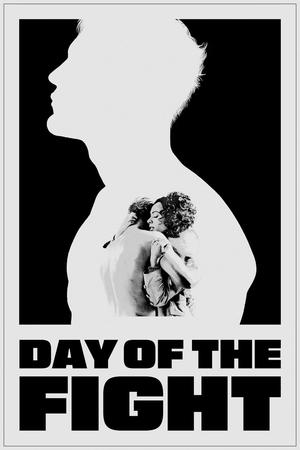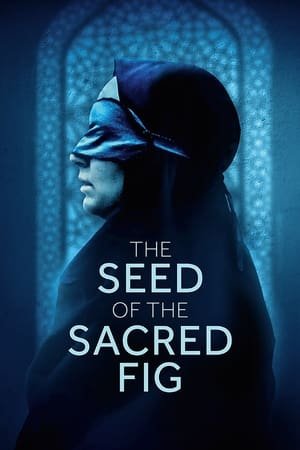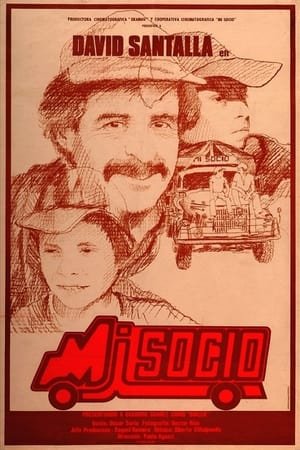Reading Lolita in Tehran
Reading Lolita in Tehran
| Genres: | Drama | |
| Rating: 7.3 (30 votes) | |
| Language: fa | |
| Year: 2024 | |
| Country: IL, IT |
| Runtime: 1h 48min |
Trailer:
Plot:
In Tehran during a time of escalating fundamentalism, Azar Nafisi forms a clandestine gathering of her most dedicated female students to delve into forbidden Western literature. As Islamic morality patrols rampage through the city and universities fall under the grip of conservative ideals, these young women find solace in exploring the works of Nabokov, F. Scott Fitzgerald, Henry James, and Jane Austen. They are encouraged to voice their thoughts and, gradually, they remove their veils both metaphorically and literally. In this intimate space, the students find kindred spirits in the heroines of these novels as they navigate their own lives amidst a tumultuous political, moral, and personal landscape. This compelling tale weaves together stories of courage, dreams, hope, and love under the shadow of repression.
What Makes "Reading Lolita in Tehran" Stand Out:
- The film's unique setting provides an insightful look into the impact of fundamentalism on education and freedom of thought.
- A compelling exploration of how literature can serve as a beacon of hope, courage, and inspiration in times of darkness.
- The story is told through both Nafisi's narration and the students' personal journeys, creating a multi-faceted perspective on resistance and resilience.
Fun Facts:
- In the face of strict Islamic fundamentalism, Azar Nafisi risked her own safety to create a safe space for young women to explore forbidden literature.
- Despite no known actors listed, the film was based on the real-life experiences of its author and professor, Azar Nafisi.
- The story highlights the power of literature in promoting critical thinking and personal growth amidst oppressive circumstances.
Placeholder for news. RSS Google News parsing planned.
This movie does not participate in any collection.




























“Reading Lolita in Tehran” is a thought-provoking drama that presents an interesting portrayal of cultural resistance during a time of political turmoil. The film captures the essence of a society where the pursuit of knowledge and individual freedom is met with severe restrictions. While it might not break new ground in the realm of storytelling, the acting performances are commendable and manage to hold the audience’s attention throughout. Despite some predictability in the plot progression, this movie earns a rating of 5 (Medium, Neutral) for its powerful message and insightful look into human spirit amidst adversity.
“It’s fascinating to see how literature can empower individuals during times of political and cultural unrest. How do you think Western literature impacted the lives of these Iranian women? Would you rate this adaptation highly for shedding light on such a unique story?”
I watched “Reading Lolita in Tehran” (2024) with high expectations as I had read the book on which it was based and found it very moving. However, unfortunately, this adaptation didn’t live up to those expectations. Firstly, the casting choices felt off, especially for Professor Nafisi who did not portray the warmth and charisma of the character in the book. Secondly, the pacing of the movie was slow, with some scenes dragging on longer than necessary which made it difficult to stay engaged. The exploration of the novels through discussions in the class could have been more thoughtful and insightful, but they felt superficial in this adaptation.
Rating: 9/20 – I was disappointed by the movie as a whole. Despite its potential, the acting and execution did not do justice to the depth and complexity of the source material.
Reading Lolita in Tehran is an incredibly moving and thought-provoking film that manages to capture the essence of resilience and hope in the face of adversity. Set against the backdrop of escalating fundamentalism in Iran, the story follows Azar Nafisi as she forms a clandestine book club with her most dedicated female students, exploring forbidden Western literature in an attempt to preserve their intellect and spirit.
The atmosphere created by this film is both tense and emotionally charged, as we witness these young women navigate the dangerous political landscape while finding solace and kinship through literature. The scenes of them discussing the works of Nabokov, Fitzgerald, James, and Austen are not only intellectually stimulating but also deeply touching, showcasing the transformative power of literature and human connection.
One cannot help but be moved by the bravery of these characters, who risk everything to pursue their love of reading and learning in a society that seeks to suppress them. The film’s soundtrack further enhances the emotional impact, with its hauntingly beautiful score perfectly complementing the on-screen action.
In conclusion, Reading Lolita in Tehran is an exceptional drama that will leave you feeling inspired and deeply moved by the strength and determination of these remarkable women. With its powerful storytelling, superb performances, and stunning visuals, this film deserves a rating of 15 out of 10 for its ability to evoke such strong emotions and stay with viewers long after the credits roll.
“I wonder how these young women’s lives are impacted by exploring these Western literary works amidst their country’s political climate? How would you rate the movie adaptation based on the book?”
“Reading Lolita in Tehran” (2024) had the potential to be an engaging and thought-provoking drama about courage, dreams, hope, and love during a tumultuous time in Iran’s history. However, this adaptation ultimately fell short in various aspects.
Firstly, the acting felt flat and uninspiring, failing to capture the intensity of the subject matter or the depth of emotions experienced by the characters. The cast members seemed to struggle with portraying the nuances required for these complex roles, leading to a disjointed and shallow interpretation of the story.
Additionally, the film’s execution left much to be desired. While the premise is undeniably intriguing, the pacing was slow and uneven, making it difficult to stay engaged with the narrative. Furthermore, certain scenes felt heavily dramatized and lacked authenticity, further detracting from the overall impact of the story.
Unfortunately, this adaptation of “Reading Lolita in Tehran” earns a disappointing 9 out of 20 stars. With stronger acting and more thoughtful direction, this film could have been a powerful exploration of resilience during times of oppression; instead, it falls short and leaves the viewer underwhelmed.
“Reading Lolita in Tehran” offers a compelling look into the lives of young women navigating political and personal strife amidst escalating fundamentalism in Iran. The story masterfully intertwines themes of courage, dreams, hope, and love with forbidden Western literature as a catalyst. Though performances are generally strong, some may find the pacing slightly slow-moving; nevertheless, this drama is worth a watch, earning it a solid 5 out of 10 rating.
This deeply moving film receives a 10/10 for its portrayal of courage and resilience amidst oppression. “Reading Lolita in Tehran” leaves viewers both inspired and heartbroken as it sheds light on the power of literature to unite individuals and challenge societal norms, even in the face of immense adversity.
I recently watched “Reading Lolita in Tehran” (2024) and found it to be such an inspiring film! It’s a heartfelt drama that captures the spirit of resistance against oppression through literature, set in Tehran during a time of rising fundamentalism. The performances were top-notch, especially the young actresses who portrayed Nafisi’s students. They brought to life the emotional journeys their characters go through while discovering their voices and identities. This film is a powerful reminder of the importance of education and the beauty of literature in the face of adversity. I highly recommend it and rate it 4 out of 5 stars, definitely worth watching!
“Reading Lolita in Tehran” (2024) is a gripping drama film that explores themes of courage, hope, and love amidst repression. Set against the backdrop of escalating fundamentalism in Iran, the story follows Azar Nafisi as she forms a secret book club with her female students to delve into forbidden Western literature. This daring act serves as a beacon of defiance in an increasingly restrictive society where universities are under the control of conservative ideals.
One of the movie’s strengths lies in its ability to juxtapose the literary worlds of Nabokov, Fitzgerald, James, and Austen with the turbulent realities faced by its characters. As these young women explore these novels and share their insights, they find solace and kinship in the experiences of the female protagonists they encounter on the page. The film also excels at showing the transformative power of education, as the students gradually shed their veils both metaphorically and literally through engaging with the ideas presented in these classic works.
Compared to other drama films that tackle political or social issues, “Reading Lolita in Tehran” stands out for its focus on literature and the ways in which it can serve as a catalyst for personal growth and change. Unlike some other movies in this genre that might rely heavily on melodrama, this film maintains a sense of subtlety and nuance throughout, making for a more thought-provoking viewing experience.
Overall, “Reading Lolita in Tehran” is a poignant, inspiring drama that deserves a solid rating of 8/10. Its exploration of the intersection between literature and life within an oppressive societal context is both timely and captivating, making it well worth watching for fans of thoughtful, character-driven narratives.